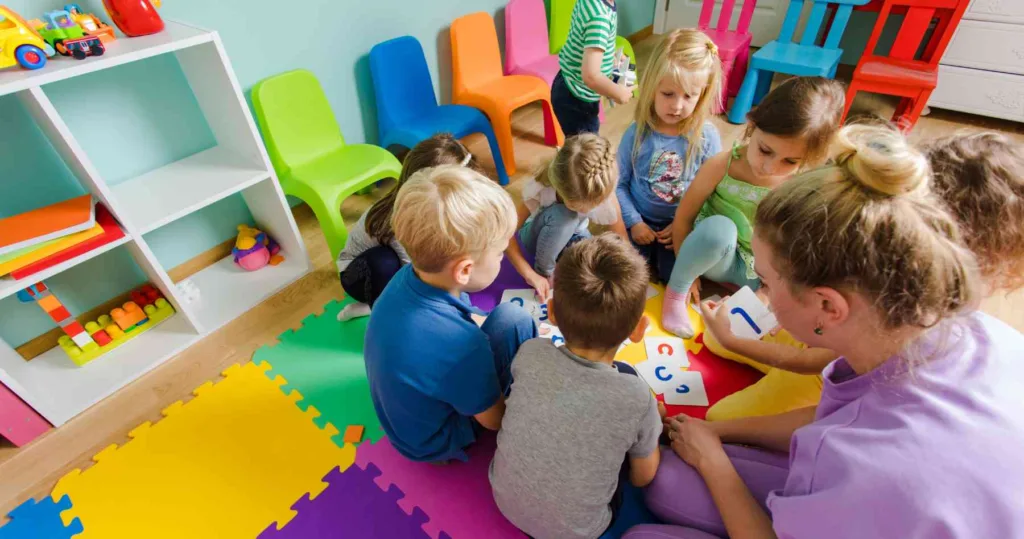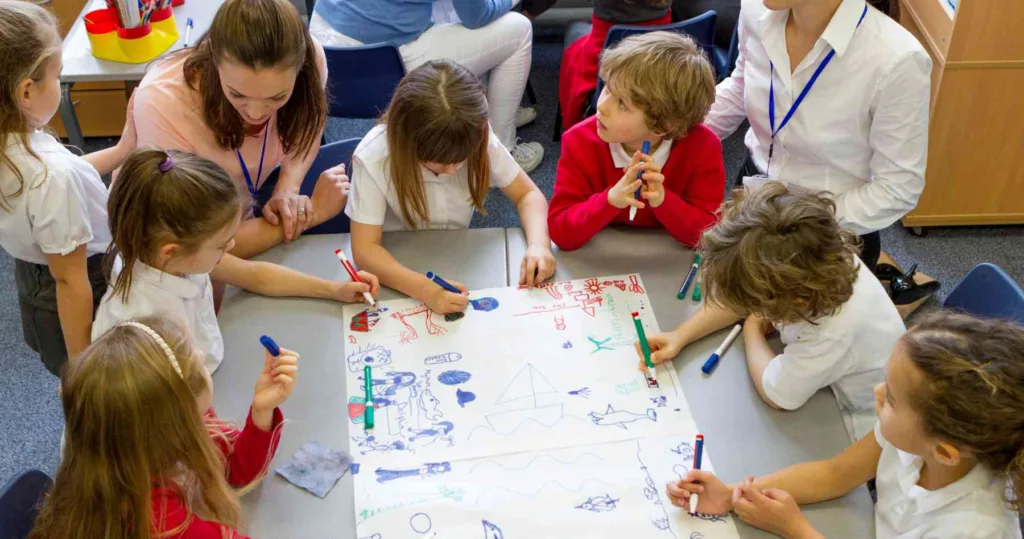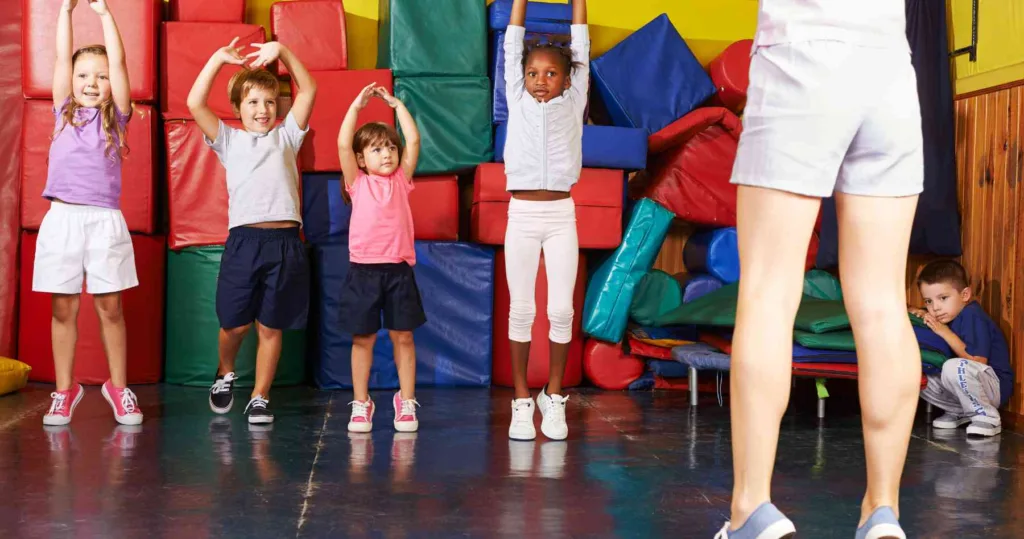Unlocking the Potential: The Power of Play in Pre-Primary Education
Pre-primary education marks the beginning of a child’s academic journey. It is a crucial phase that lays the foundation for their future learning experiences. While structured lessons are undeniably essential, there exists a powerful tool that often goes underutilized: play. In this article, we will delve deep into the concept of play in pre-primary education, shedding light on its significance, methods, and the positive impact it can have on a child’s development. “The Power of Play in Pre-Primary” Education, the article needs to be reader centric and beneficial to the reader” is not just a phrase; it’s a transformative approach to early childhood learning.

The Power of Play in Pre-Primary Education
Incorporating play into pre-primary education is not a mere diversion; it is a strategic educational approach that yields remarkable results. Here, we explore why play is so powerful in this context.
1. Fostering Creativity and Imagination
Play encourages children to explore their imaginations freely. Whether it’s building with blocks, creating art, or engaging in make-believe scenarios, play stimulates creativity. Through imaginative play, children learn to think outside the box, a skill that serves them well in later academic endeavors and life challenges.
2. Developing Social Skills
Playtime provides ample opportunities for children to interact with their peers. It teaches them valuable lessons in sharing, cooperation, and conflict resolution. These social skills are essential not only for their academic success but also for their overall personal growth.
3. Enhancing Cognitive Abilities
Play is not just fun; it’s also mentally stimulating. Activities like puzzles, memory games, and storytelling improve cognitive functions, memory retention, and problem-solving skills. These skills are fundamental in a child’s educational journey.
4. Encouraging Physical Development
Active play, such as running, jumping, and climbing, contributes to physical development. It enhances gross motor skills, balance, and coordination, promoting a healthy lifestyle from an early age.
5. Reducing Stress and Anxiety
Incorporating playtime into the school day helps alleviate stress and anxiety in young children. It provides an outlet for pent-up energy and emotions, promoting emotional well-being.
Get In touch
Leave us a message
4 Claret Road, Table View, 7441
(021) 556 4146
office@applebeekids.com
Play-Based Learning Strategies
To harness “The Power of Play in Pre-Primary Education, the article needs to be reader centric and beneficial to the reader,” educators and parents can employ various strategies effectively.
1. Structured Play
Structured play involves planned activities that have specific learning objectives. It can include educational games, group projects, or guided explorations, ensuring that play aligns with educational goals.
2. Role Play
Encourage children to engage in role-playing scenarios. Whether it’s pretending to be a doctor, chef, or astronaut, role play enhances imagination, language development, and problem-solving.
3. Sensory Play
Sensory play involves activities that stimulate the five senses, such as sand play, water play, or exploring different textures. It aids in sensory perception and understanding the world around them.
4. Outdoor Play
Outdoor play offers a wealth of benefits. Natural settings provide opportunities for exploration, physical activity, and exposure to the environment, fostering a connection with nature.
5. Creative Arts
Artistic activities like drawing, painting, and sculpting allow children to express themselves and develop fine motor skills. It also nurtures an appreciation for aesthetics.
“The Power of Play in Pre-Primary Education, the article needs to be reader centric and beneficial to the reader” is a concept that transcends mere words. It is a transformative approach to education that nurtures a child’s holistic development. By fostering creativity, enhancing social skills, and promoting cognitive and physical growth, play becomes an invaluable asset in pre-primary education. Embrace play-based learning, and unlock the boundless potential it offers to our future generations.


Applebee Kids: Transforming Education Through Play
As parents, you undoubtedly seek the best possible education for your children, one that not only imparts knowledge but also nurtures their overall development. In this pursuit, you’ll be delighted to learn about Applebee Kids, an educational institution that stands as a beacon of innovative and effective pre-primary education.
Why Applebee Kids?
At Applebee Kids, the power of play in pre-primary education takes center stage. This institution recognizes that children learn best when they are actively engaged, curious, and having fun. Their holistic approach to education places a strong emphasis on play-based learning, and here’s why it matters to you, as a parent:
1. Nurturing Creativity and Imagination
Applebee Kids understands that creativity and imagination are essential for a child’s growth. Through various play-based activities like art, storytelling, and imaginative play, they foster an environment where your child’s creativity knows no bounds.
2. Developing Social Skills
Social skills are vital for your child’s future success. Applebee Kids’ interactive play sessions provide a safe space for children to learn cooperation, empathy, and effective communication – skills that will serve them well in school and beyond.
3. Enhancing Cognitive Abilities
Cognitive development is at the core of early education, and Applebee Kids excels in this area. Their play-based learning activities, such as puzzles and memory games, are designed to stimulate your child’s cognitive abilities, ensuring they are well-prepared for their academic journey.
4. Encouraging Physical Development
Applebee Kids recognizes the importance of physical activity. Their outdoor play areas and activities not only keep your child active but also promote healthy physical development.
5. Reducing Stress and Anxiety
In today’s fast-paced world, stress and anxiety can affect even the youngest minds. Applebee Kids understands this and provides a nurturing environment where play serves as a natural stress reliever, ensuring your child’s emotional well-being.
By enrolling your child in Applebee Kids, you’re not just providing an education; you’re giving them a platform to explore, learn, and grow through the power of play. Your child’s journey will be guided by experienced educators who understand that every child is unique and that learning should be a joyful adventure.
In conclusion, Applebee Kids sets a shining example of how “The Power of Play in Pre-Primary Education, the article needs to be reader centric and beneficial to the reader.” isn’t just a concept but a transformative reality. They empower young minds to become confident, creative, and compassionate individuals ready to embrace the challenges of the future.
So, as you explore educational options for your child, consider Applebee Kids – a place where play meets purpose, and learning is a joyful exploration.
